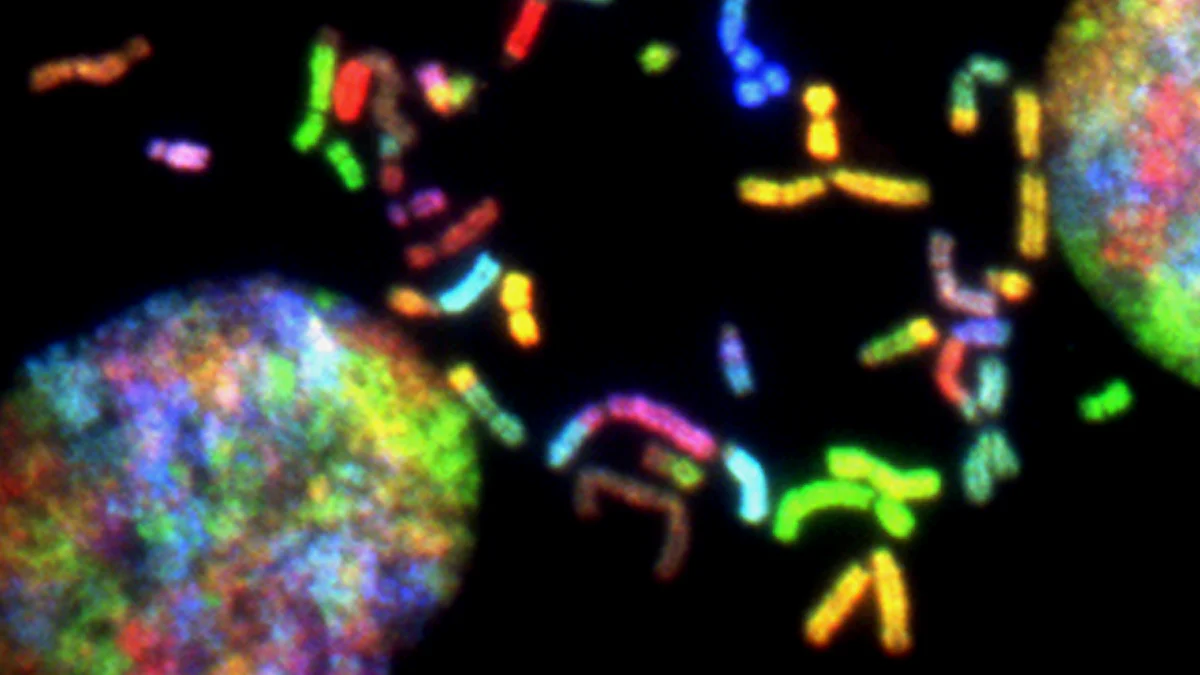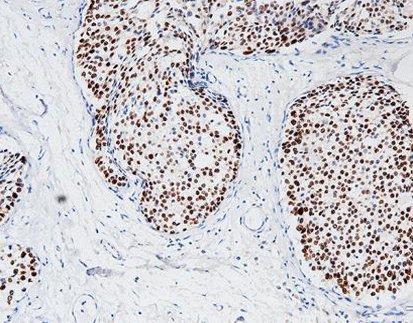Why Molecular Diagnostics Matter in Healthcare Today

By admin
Molecular diagnostics play a pivotal role in modern healthcare, revolutionizing disease detection and treatment strategies. By analyzing DNA or RNA, healthcare professionals can identify genetic markers for various illnesses, enabling early intervention and personalized care plans. This blog delves into the significance in healthcare, exploring how molecular diagnostics drive precision medicine and improve patient outcomes. Let’s uncover the evolution, techniques, applications, and future prospects of this cutting-edge field.
Molecular Diagnostics
The realm of Molecular Diagnostics encompasses the analysis of DNA and RNA, delving into the intricate genetic code within our cells. By scrutinizing these molecular components, healthcare professionals can unveil crucial insights into potential disease emergence. This branch of diagnostics has evolved significantly over time, transitioning from historical milestones to cutting-edge technologies that are revolutionizing healthcare practices.
DNA and RNA Analysis
Unraveling the mysteries encoded within DNA and RNA provides a gateway to understanding an individual’s genetic predispositions. Through meticulous analysis, healthcare experts can pinpoint specific genetic markers indicative of various health conditions, enabling proactive interventions and tailored treatment plans.
Genetic Code and Disease Detection
The genetic code embedded in DNA or RNA serves as a blueprint for an individual’s health landscape. By scrutinizing this code, healthcare providers can identify red flags signaling the onset of specific diseases. This proactive approach allows for early detection and intervention strategies that can significantly impact patient outcomes.
Evolution of Molecular Diagnostics
Historical Background
The journey of molecular diagnostics traces back to significant historical milestones where the foundations were laid for today’s advanced diagnostic techniques. These pioneering efforts have paved the way for a more nuanced understanding of disease mechanisms and personalized treatment approaches.
Recent Advancements
In recent years, technological advancements have propelled molecular diagnostics into a new era of precision and efficiency. Innovations in sequencing technologies, data analytics, and bioinformatics have enhanced our ability to decode complex genetic information swiftly and accurately.
Techniques and Applications
In the realm of Molecular diagnostics, various techniques are employed to unravel the mysteries encoded within DNA and RNA, providing valuable insights into genetic predispositions and potential health conditions. These techniques play a crucial role in healthcare by enabling precise disease detection and personalized treatment strategies.
Common Techniques
PCR (Polymerase Chain Reaction)
Polymerase Chain Reaction (PCR) stands as a cornerstone technique in molecular diagnostics, allowing for the amplification of specific DNA sequences. By replicating targeted DNA regions, PCR enables the detection of genetic mutations associated with various diseases. This method plays a pivotal role in identifying specific DNA or RNA sequences indicative of genetic disorders or infectious diseases.
Next-Generation Sequencing
Next-Generation Sequencing (NGS) represents a revolutionary advancement in molecular diagnostic techniques, offering high-throughput sequencing capabilities. NGS allows for the rapid analysis of entire genomes, providing comprehensive insights into genetic variations and disease markers. This technique is instrumental in uncovering complex genetic information that influences disease development and progression.
Applications in Healthcare
Cancer Diagnosis and Treatment
Molecular diagnostic assays have transformed cancer diagnosis and treatment paradigms by enabling precise identification of genetic alterations driving tumor growth. By analyzing specific DNA or RNA sequences, healthcare professionals can tailor treatment plans to target mutations effectively. Integrating molecular diagnostic tools into clinical practice enhances the accuracy of cancer diagnoses, guiding personalized therapeutic interventions.
Infectious Disease Detection
Infectious diseases pose significant challenges to public health systems worldwide, necessitating rapid and accurate diagnostic tests for effective management. Molecular diagnostics methods offer sensitive and specific detection of pathogens by analyzing their genetic material. By identifying unique DNA or RNA sequences associated with infectious agents, these techniques facilitate early intervention strategies and targeted treatments.
Significance in Healthcare
Precision Medicine
Personalized Treatment Plans
In the realm of healthcare, Precision Medicine stands as a groundbreaking approach that tailors medical decisions and treatments to individual characteristics. By analyzing genetic variations, healthcare providers can develop personalized treatment plans that target specific health conditions with precision. This innovative strategy ensures that patients receive interventions tailored to their unique genetic makeup, enhancing treatment efficacy and patient outcomes.
Genetic Mutations and Drug Response
The identification of genetic mutations plays a pivotal role in predicting an individual’s response to certain medications. By scrutinizing an individual’s genetic profile, healthcare professionals can anticipate how the body will metabolize drugs and whether any adverse reactions may occur. This proactive approach enables physicians to prescribe medications that are most likely to be effective based on the patient’s genetic predispositions, optimizing treatment outcomes.
Clinical Impact
Early Disease Detection
Early detection of diseases is paramount in improving patient outcomes and reducing the burden of illness. Through molecular diagnostics, healthcare practitioners can identify subtle changes at the molecular level that signal the onset of various health conditions. This early detection allows for prompt intervention strategies, leading to more effective treatments and better prognoses for patients.
Improved Patient Outcomes
The integration of molecular diagnostics into clinical practice has significantly enhanced patient outcomes across various medical specialties. By leveraging advanced diagnostic tools, healthcare teams can make accurate diagnoses, tailor treatment plans, and monitor disease progression with precision. This targeted approach not only improves patient outcomes but also reduces unnecessary procedures and minimizes potential risks associated with delayed or incorrect diagnoses.
In low-income settings, success case studies have demonstrated the transformative impact of molecular diagnostics on public health responses. For instance, in Nigeria, the use of molecular methods enabled the early detection of Ebola and Yellow fever hemorrhagic viruses, guiding timely interventions that mitigated disease spread:
The application of molecular diagnostic tests provided crucial insights into disease transmission dynamics.
Rapid identification of viral pathogens facilitated containment efforts and prevented further outbreaks.
These findings underscore the significance of molecular diagnostics in enhancing global health security.
Moreover, diagnostic testing for monogenic diabetes has showcased the accessibility and relevance of molecular genetic testing in healthcare:
Molecular diagnostics offer a precise classification of monogenic diabetes subtypes.
Tailored treatment strategies based on genetic insights improve patient management and long-term health outcomes.
The adoption of molecular diagnostic tools expands access to specialized care for individuals with rare genetic disorders.
Future Directions
The landscape of Molecular Diagnostics is poised for groundbreaking advancements, driven by emerging technologies that promise to redefine healthcare practices. The integration of CRISPR and Gene Editing techniques heralds a new era in precision medicine, offering unprecedented capabilities to manipulate genetic sequences with remarkable accuracy. This revolutionary approach empowers healthcare professionals to target specific genes associated with diseases, paving the way for tailored treatment strategies that address the root causes of illnesses.
Artificial Intelligence (AI) is set to revolutionize Molecular diagnostics, enhancing the speed and accuracy of disease detection and prognosis. By leveraging AI algorithms to analyze vast amounts of molecular data, healthcare providers can unlock valuable insights into patients’ genetic profiles and disease trajectories. This data-driven approach enables more precise diagnoses and personalized treatment plans, optimizing patient outcomes and streamlining clinical decision-making processes.
Potential Developments
Integration into Routine Healthcare
The seamless integration of molecular diagnostics into routine healthcare practices holds immense potential for transforming patient care on a global scale. As these advanced technologies become more accessible and cost-effective, healthcare systems can harness the power of molecular insights to deliver personalized interventions and preventive strategies. By incorporating molecular diagnostics into standard medical protocols, clinicians can enhance diagnostic accuracy, tailor treatment regimens, and improve overall patient well-being.
Global Health Implications
The implications of advancing molecular diagnostics reach far beyond individual patient care, extending to broader global health initiatives. By leveraging these innovative tools in resource-limited settings, healthcare providers can bolster disease surveillance efforts, track infectious outbreaks more effectively, and implement targeted interventions to mitigate public health risks. The widespread adoption of molecular diagnostics has the potential to strengthen healthcare systems worldwide, fostering a proactive approach to disease prevention and control.
Molecular Diagnostics herald a new era in healthcare by enabling early, accurate disease screening and prediction, shifting the paradigm from reactive to preventive medicine. This proactive approach not only improves overall health care efficiency but also conserves valuable resources. As Molecular Diagnostics seamlessly integrate into standard healthcare practices, they are set to become as essential as traditional laboratory tests, revolutionizing disease diagnosis and management.
Celnovte, a high-tech enterprise specializing in precision diagnostic instruments and reagents for tumors, offers a comprehensive range of molecular diagnostics solutions. With a focus on early screening, precise diagnosis, drug companion, and treatment monitoring of tumors, Celnovte aims to provide a complete industrial chain integrating research and development, production, sales, and service in this field.
The company’s molecular diagnostics portfolio includes advanced technologies and products that enable accurate and efficient detection of genetic and molecular markers associated with various types of tumors, covering . Celnovte has established a state-of-the-art Research and Development platform, including the development of IVD-grade immunohistochemistry primary antibodies. They have expertise in both murine monoclonal antibodies and human monoclonal antibodies, utilizing hybridoma cell fusion technology and single B-cell method, respectively. This allows them to provide customized development services for high-quality antibodies with high sensitivity and strong specificity, crucial for successful research in target detection and drug development. They also provide efficient solutions for histology and cytology diagnostics.
Furthermore, Celnovte’s molecular diagnostics offerings are supported by their commitment to quality and innovation. They have obtained ISO9001, ISO13485, and EU CE-ID certifications, ensuring compliance with international standards. The company’s dedication to providing first-class products and services, along with their cutting-edge research and production facilities, positions them as a leading provider of comprehensive solutions for molecular diagnostics in the field of tumor pathology diagnosis.












